 W
WMohamed ibn Abdelkrim El-Khattabi, better known as Abd el-Krim was a Berber political and military leader. He and his brother Mhemmed led a large-scale revolt by a coalition of Berber Riffian tribes against French and Spanish colonization of the Rif, in northern Morocco. His guerrilla tactics, which included the first-ever use of tunneling as a technique of modern warfare, directly influenced Ho Chi Minh, Mao Zedong and Che Guevara.
 W
WJoannes Leo Africanus was a Berber Andalusi diplomat and author who is best known for his book Descrittione dell’Africa centered on the geography of the Maghreb and Nile Valley. The book was regarded among his scholarly peers in Europe as the most authoritative treatise on the subject until the modern exploration of Africa. For this work, Leo became a household name among European geographers.
 W
WJean el Mouhouv Amrouche was an Algerian francophone writer, poet and journalist.
 W
WMarie-Louise-Taos Amrouche was an Algerian writer and singer. In 1947, she became the first Algerian woman to publish a novel.
 W
WApuleius was a Latin-language prose writer, Platonist philosopher and rhetorician. He was a Numidian who lived under the Roman Empire and was from Madauros. He studied Platonism in Athens, travelled to Italy, Asia Minor, and Egypt, and was an initiate in several cults or mysteries. The most famous incident in his life was when he was accused of using magic to gain the attentions of a wealthy widow. He declaimed and then distributed a witty tour de force in his own defense before the proconsul and a court of magistrates convened in Sabratha, near ancient Tripoli, Libya. This is known as the Apologia.
 W
WMohammed Awzal is the most important author in the literary tradition of the Tashlehit-Berber language. He was born around 1680 in the village of al-Qaṣaba (Elqeṣba) in tribal territory of the Induzal, in the region of Sus in Morocco and died in 1749.
 W
WAbdelkader Benali is a Moroccan-Dutch writer and journalist.
 W
WMohammed Benzakour is a Moroccan-Dutch columnist, essayist, poet, writer and politician. He is the third child in a family of five. At age three, he and mother and siblings settle in Zwijndrecht, Netherlands, where his father worked. He graduated from high school at vwo level and studied sociology at Leiden University and later political science and moved to Rotterdam to finish his master. Meanwhile, he joined the Labour Party. He started his journalism career working for De Volkskrant and also published in NRC Handelsblad, De Groene Amsterdammer and Vrij Nederland. He received the ASN Media Prize in 1999 and the Silver Zebra in 2001 for insights in a 'society in motion'. He later published two books, Abou Jahjah: Nieuwlichter of Oplichter. De demonisering van een politiek rebel in 2004 and Osama's Grot, Allah, Holland en ik, a compilation of his columns, articles and essays from 2001 until 2005, the year of publication. In that same year he also won the Peace Prize for Journalism. In 2008 his 'Stinkende Heelmeesters' was published, a compilation of essays, reviews, columns and reports from 2001–2008.
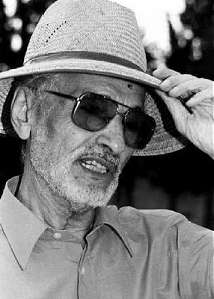 W
WMohamed Chafik, born 17 September 1926, is a leading figure in the Amazigh cultural movement. An original author of the Amazigh Manifesto, he was later appointed as the first Rector of the Royal Institute of the Amazigh Culture. He has worked extensively on incorporating Amazigh culture into Moroccan identity and is a leading intellectual of the Moroccan intelligentsia.
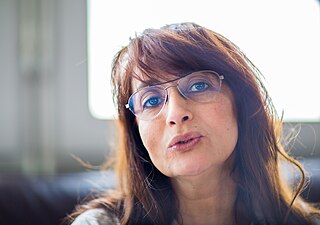 W
WNadia Chafik is a Moroccan novelist.
 W
WMouloud Feraoun was an Algerian writer and martyr of the Algerian revolution born in Tizi Hibel, Kabylie. Some of his books, written in French, have been translated into several languages including English and German. He was assassinated by the French OAS on 15 March 1962.
 W
WKacem El Ghazzali, is a secularist essayist and activist and is one of the few Moroccans to publicly announce to be an atheist. Kacem speaks English, as well as German, French, Arabic and Berber. Mostly known for his publicly voiced atheism, his writings stress the importance of freedom of thought which, in his view is lacking in countries dominated by Islam. His articles have been published in/by the Richard Dawkins Foundation, Huffington Post, Le Monde, Neue Zürcher Zeitung, Frankfurter Allgemeine Zeitung, Basler Zeitung and others.
 W
WSalima Ghezali is an Algerian journalist and writer.
 W
WAbu Abd Allah Muhammad Ibn Tumart was a Moroccan Muslim Berber religious scholar, teacher and political leader, from the Sous region in southern Morocco. He founded and served as the spiritual and first military leader of the Almohad movement, a puritanical reform movement launched among the Masmuda Berbers of the Atlas Mountains. Ibn Tumart launched an open revolt against the ruling Almoravids during the 1120s. After his death his followers, the Almohads, went on to conquer much of North Africa and part of Spain.
 W
WJuba II or Juba of Mauretania Caesariensis was the client King of Numidia and Mauretania Caesariensis, succeeding his Numidian father Juba I. Aside from his very successful reign, he was a highly respected scholar and author. His first wife was Cleopatra Selene II, daughter of Egyptian Queen Cleopatra VII of Ptolemaic Egypt and Roman Triumvir Mark Antony.
 W
WLucius Caecilius Firmianus Lactantius was an early Christian author who became an advisor to the first Christian Roman emperor, Constantine I, guiding his religious policy as it developed, and a tutor to his son Crispus. His most important work is the Institutiones Divinae, an apologetic treatise intended to establish the reasonableness and truth of Christianity to pagan critics.
 W
WAli Lmrabet is a Moroccan journalist and a member of the Moroccan Association for Human Rights.
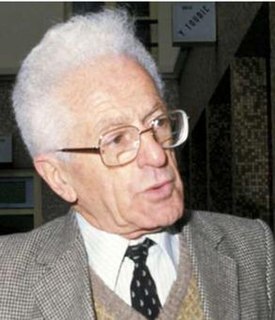 W
WMouloud Mammeri was an Algerian writer, anthropologist and linguist.
 W
WMalika Mokeddem is an Algerian writer.
 W
WMohammed Mzali was a Tunisian politician who served as Prime Minister between 1980 and 1986.
 W
WMalika Oufkir is a Moroccan Berber writer and former "disappeared". She is the daughter of General Mohamed Oufkir and a cousin of fellow Moroccan writer and actress Leila Shenna.
 W
WLucien-Samir Oulahbib is a French sociologist, political scientist, writer and journalist who taught at the University Lyon 3, from 2007 until 2019. He taught at the University Paris X from 2005 to 2007 and now teaches at Albert le Grand Institute. He manages Dogma philosophy journal together with Isabelle Saillot.
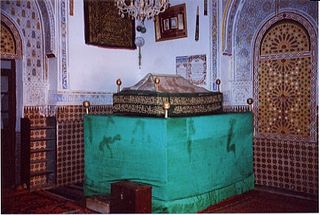 W
WAbu Muhammad Salih ibn Yansaran Said ibn Ghafiyyan ibn al-Haj Yahya al-Dukkali al-Majiri, simply known as Abu Muhammad Salih (1155–1234), was a Moroccan saint and one of the successors of Abu Madyan. He was the patron saint of Safi and lived during the reign of the Almohad Caliphate.
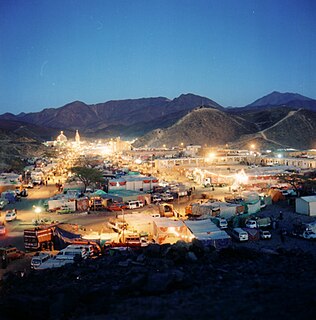 W
WAbu al-Hasan ash-Shadhili also known as Sheikh al-Shadhili [593 AH/1196 AD – 656 AH/1258 AD] was an influential Moroccan Islamic scholar and Sufi, founder of the Shadhili Sufi order.
 W
WPublius Terentius Afer, better known in English as Terence, was a Roman African playwright during the Roman Republic. His comedies were performed for the first time around 170–160 BC. Terentius Lucanus, a Roman senator, brought Terence to Rome as a slave, educated him and later on, impressed by his abilities, freed him. Terence apparently died young, probably in Greece or on his way back to Rome. All of the six plays Terence wrote have survived.
 W
WTertullian was a prolific early Christian author from Carthage in the Roman province of Africa. Of Berber and Phoenician origin, he was the first Christian author to produce an extensive corpus of Latin Christian literature. He was an early Christian apologist and a polemicist against heresy, including contemporary Christian Gnosticism. Tertullian has been called "the father of Latin Christianity" and "the founder of Western theology."
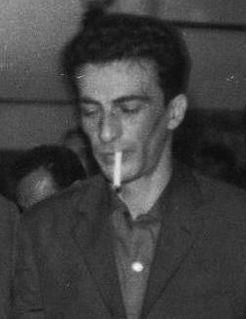 W
WKateb Yacine (Arabic pronunciation: [kæːtb jæːsiːn] was an Algerian Berber writer notable for his novels and plays, both in French and Algerian Arabic, and his advocacy of the Berber cause.